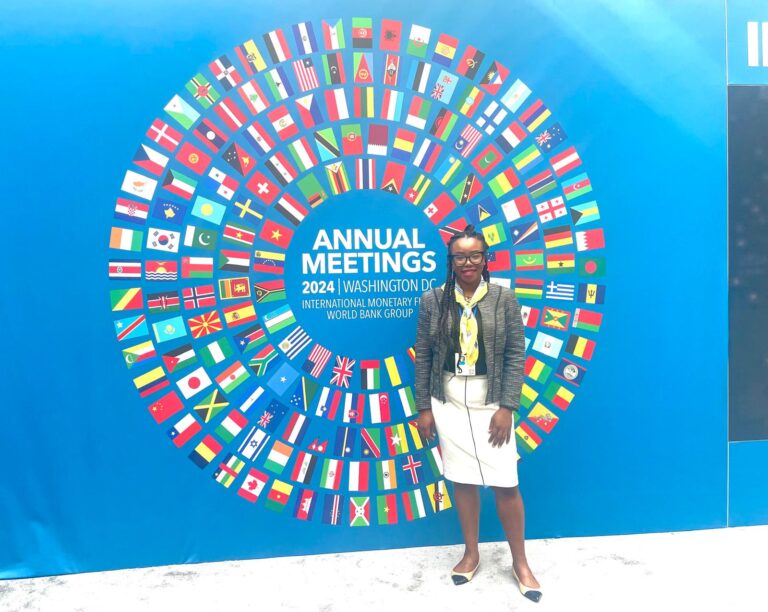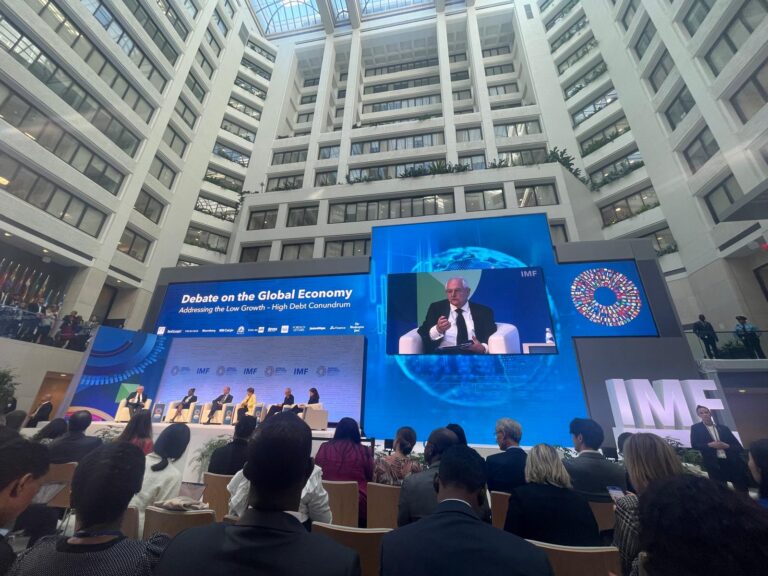World Bank - International Monetary Fund Annual Meetings 2024 | Washington, DC

Summary of Key Takeaways
During the recent plenary session at the World Bank-IMF meetings in Washington D.C., multiple insights emerged, underscoring persistent global challenges and priorities for sustainable growth and economic resilience, especially within developing regions like Africa. Key themes included the longevity of high prices despite a downturn in inflation, the urgency of improving education systems to address future labor needs, and the necessity of prioritizing healthcare and agriculture amid geopolitical tensions.
Key Insights and Analysis
Economic Stability and Price Endurance
- Inflation Trends: While inflation rates are tapering globally, high prices are anticipated to persist for the foreseeable future. This outlook signals a prolonged period of elevated living costs, pressuring household consumption and local economies.
- Growth vs. Geopolitical Challenges: Despite a generally positive outlook on growth, the meeting emphasized the detrimental impact of ongoing geopolitical uncertainties. Tensions continue to hamper economic progress and discourage private sector investment, especially in regions highly dependent on global supply chains.
Focus on Agricultural Productivity and Healthcare Systems
- Food Security Concerns: There was a pronounced call for governments to enhance agricultural productivity. Increasing domestic agricultural output is seen as essential to stabilizing food prices and ensuring food security amid global supply chain disruptions.
- Healthcare System Expansion: Scaling healthcare systems emerged as a high priority, especially in low- and middle-income countries. With aging populations and rising healthcare demands, there is a pressing need for resilient healthcare infrastructure to prevent economic instability due to health crises.
Human Capital and Employment: Education as a Strategic Investment
- Educational Quality and Job Readiness in Africa: A major highlight was the emphasis on improving the quality of education within Africa. The continent’s demographic dividend requires a strong investment in education to equip future generations with the skills necessary for emerging job markets, particularly in technology, green energy, and services.
- Local Content and Skills Training: Countries were encouraged to invest in local content development, including vocational training and skill-building programs tailored to meet both current and future industry demands. This focus on localized skill development aims to reduce unemployment rates and bolster local economies.
- Government Funding for Education: Reflecting a common sentiment, policymakers were urged to allocate more resources toward education within national budgets. The reframing of education as an investment—rather than an expense—highlights a strategic pivot toward long-term economic resilience.
Strategic Implications
Short-Term Economic Resilience Measures: Governments may need to implement policy measures to cushion the impacts of high prices, particularly for essential goods. Subsidies for critical sectors and targeted cash transfer programs could mitigate adverse effects on vulnerable populations.
Investment in Human Capital: African nations, in particular, should consider adjusting budget priorities to favor education and skills development to prepare for future job markets. Additionally, aligning educational content with industry needs will be crucial to address skill mismatches and optimize employment rates.
Policy Recommendations on Agriculture and Healthcare: Emphasizing the role of agriculture and healthcare in economic stability, the World Bank and IMF are likely to advocate for increased funding and policy support in these sectors. Multilateral support initiatives may also prioritize these areas to enhance resilience in the face of geopolitical and economic uncertainties.
Conclusion
The World Bank-IMF annual meetings highlighted the need for proactive, long-term investments in education, agriculture, and healthcare to foster sustainable growth. African nations, in particular, are encouraged to bolster education systems and develop human capital, viewing these not as expenditures but as foundational investments for future economic stability and growth. This strategic reallocation could lay the groundwork for a more resilient, adaptive workforce capable of navigating an increasingly complex global economy.
A side cultural note…..
Watching the West African cultural drums event was a fascinating experience, and I truly appreciate the organizers’ dedication to celebrating our heritage through music and dance.
The beat of the drums, kept attendees energized between one panel meeting and the other. The excitement was palpable, however, as an African deeply invested in our continent’s future, I felt there was an opportunity to bridge tradition with the incredible momentum we’re seeing in Africa’s creative industries.
With Africa emerging as a global powerhouse for entertainment and culture, this event could have reflected that modern creativity alongside our traditional roots. As more people look to Africa for fresh perspectives and innovative art, it’s essential we present a well-rounded, forward-looking vision that showcases our legacy alongside the groundbreaking creations of today. I’d be happy to consult with the organizing team for next year’s event to create a richer, more forward-thinking experience. Together, we could amplify the incredible diversity of our heritage, bringing Africa’s dynamic evolution in art and entertainment to the forefront.

